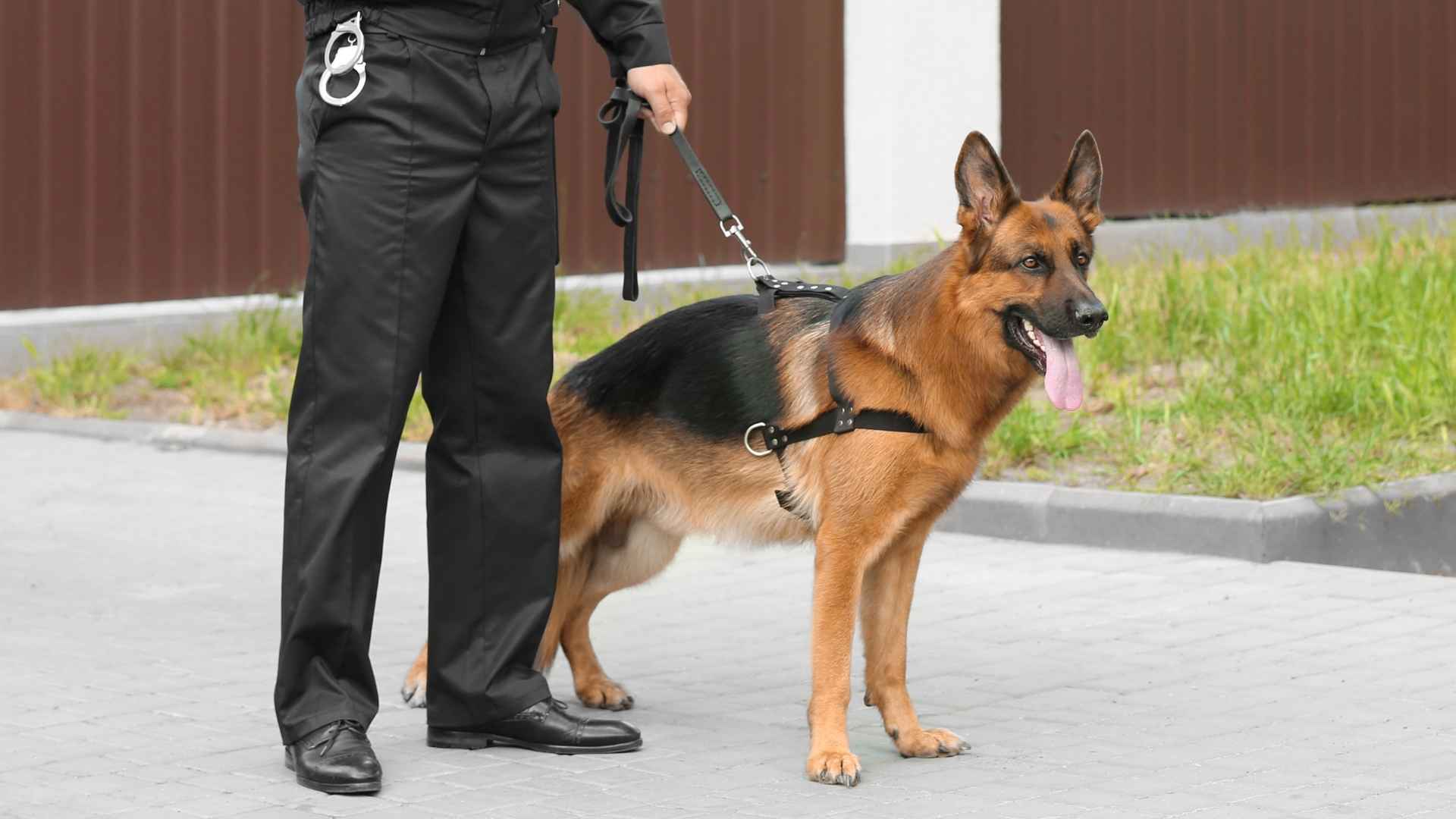There’s something undeniably heartwarming about the loyalty of a rescue dog. These incredible companions don’t just offer love—they offer a bond built on second chances and silent promises. When you open your heart to a rescue, you’re not just giving a dog a home; you’re gaining a lifelong friend whose devotion runs deep.
These loyal and rescue dog breeds are known for forming unbreakable connections with their humans, often sensing emotions and offering comfort without a word. Whether you’re a solo adventurer, part of a bustling family, or someone in need of quiet companionship, these dogs have a way of fitting into your world like they were always meant to be there.
In this blog, we’ll explore the most loyal dog breeds used for rescue work—those that don’t just follow you home, but follow you through life with steadfast love. Get ready to meet your future furry soulmate.
Loyal Rescue Dog Breeds
1. Labrador Retriever
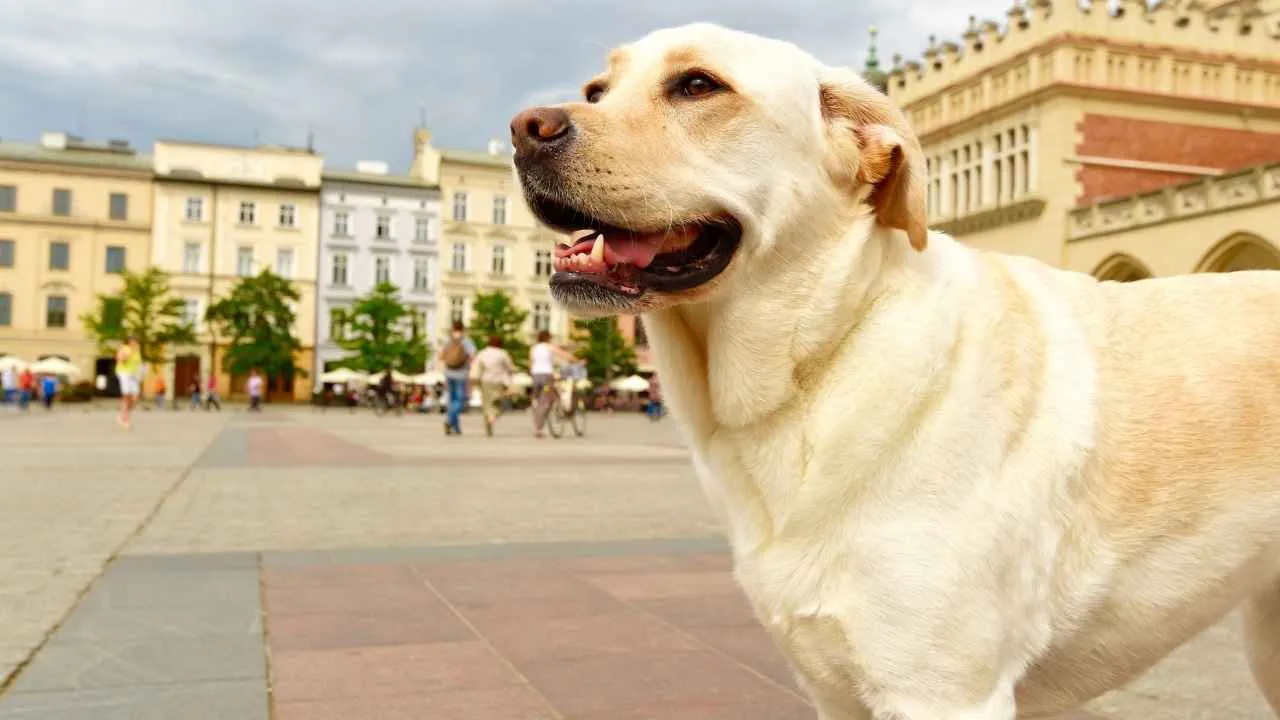
Few breeds embody loyalty like the Labrador Retriever. Known for their even temper and eagerness to please, Labs form deep emotional bonds with their adopters, often shadowing them from room to room. Their intuitive nature makes them especially responsive to human emotions, offering quiet comfort and a constant, calming presence.
Labradors are widely celebrated for their excellence in various rescue roles. Their intelligence, trainability, and keen sense of smell allow them to work effectively in search-and-rescue missions, locating missing persons in disaster zones, wilderness, or water-based emergencies.
They’re also frequently trained as detection dogs, assisting in everything from avalanche searches to cadaver recovery. Their ability to stay focused under pressure and take direction with precision makes them indispensable in crises.
Beyond high-intensity rescue work, Labradors are frequently placed as service or therapy dogs for individuals with physical or emotional challenges. Their calm demeanor, predictability, and ability to learn complex tasks make them ideal for aiding people with PTSD, autism, or mobility impairments.
They are naturally patient, especially with children and seniors, and their sociable disposition makes them a good fit for households that may already include other pets. They thrive on human connection and consistent routines, making them easy to integrate into their new homes without the behavioural challenges that often accompany more anxious or high-strung breeds.
Their athleticism adds another layer to their rescue capabilities. With strong limbs and webbed feet, they are natural swimmers, making them especially valuable in water rescues. Their endurance and love for activity also mean they can handle long hours in the field, whether working with law enforcement, search teams, or medical response units.
2. German Shepherd
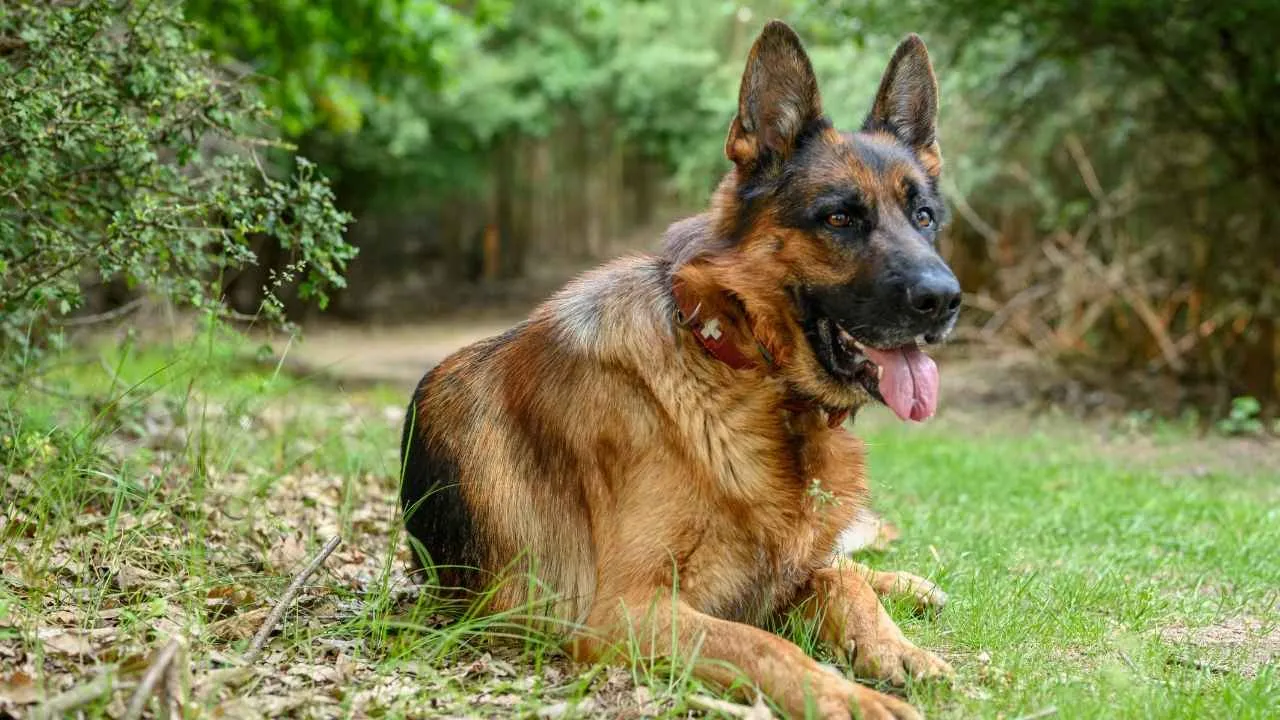
The German Shepherd’s legacy as a loyal and capable rescue dog goes far beyond modern shelters and adoption centres—it’s etched in history. Originally bred in Germany in the late 19th century to herd sheep and guard flocks, this breed quickly proved to be far more than a farm dog.
Its sharp intelligence, unmatched work ethic, and strong sense of duty made it an obvious choice for roles that required more than brute strength—roles that demanded loyalty, discipline, and intuition.
During World War I and II, German Shepherds were deployed on battlefields not just as messengers and sentries but as true rescue dogs. They carried medical supplies, sought out wounded soldiers, and led medics to their location, even under heavy fire.
Today, that same fearless loyalty makes them exceptional in both urban and wilderness rescue missions. Whether tracking lost hikers, navigating rubble in earthquake zones, or working alongside search teams in disaster relief operations, German Shepherds are often at the forefront.
Their strong noses, steady nerves, and ability to interpret complex commands in high-stress situations set them apart from other breeds.
Britannica states German Shepherds thrive when given purpose. Many who are rescued from working backgrounds—police, military, or security—often require structured homes with consistent routines. But when placed with the right adopter, they flourish, offering both emotional loyalty and a natural inclination to protect and serve.
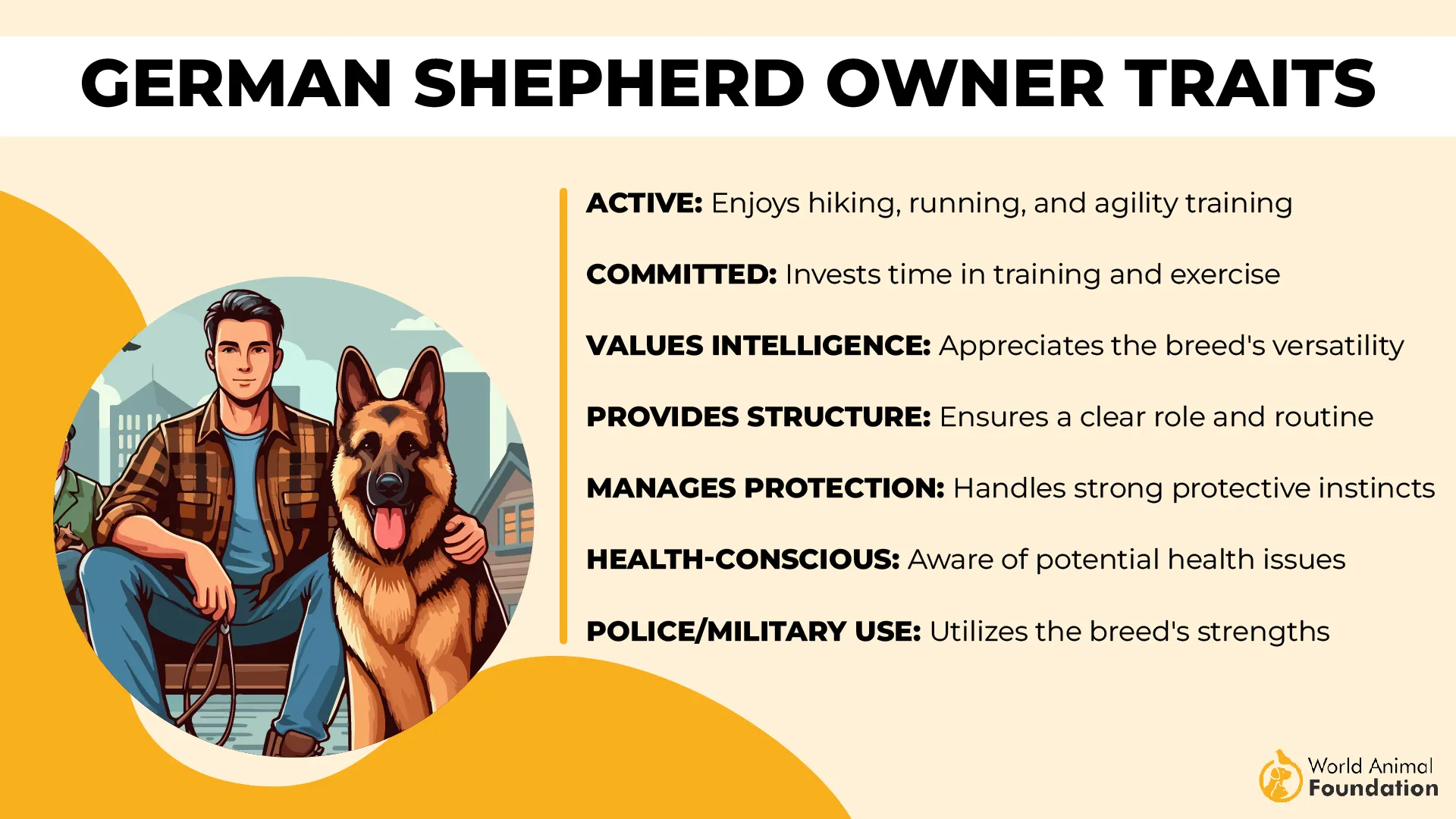
German Shepherds are known to form deeply protective bonds with their adopters. They often assume the role of guardian without being asked, staying alert to their surroundings and intuitively watching over their family. While they may appear serious and stoic, those who adopt them quickly discover their affectionate, almost soulful side, especially when they feel they’re truly needed.
3. Boxer
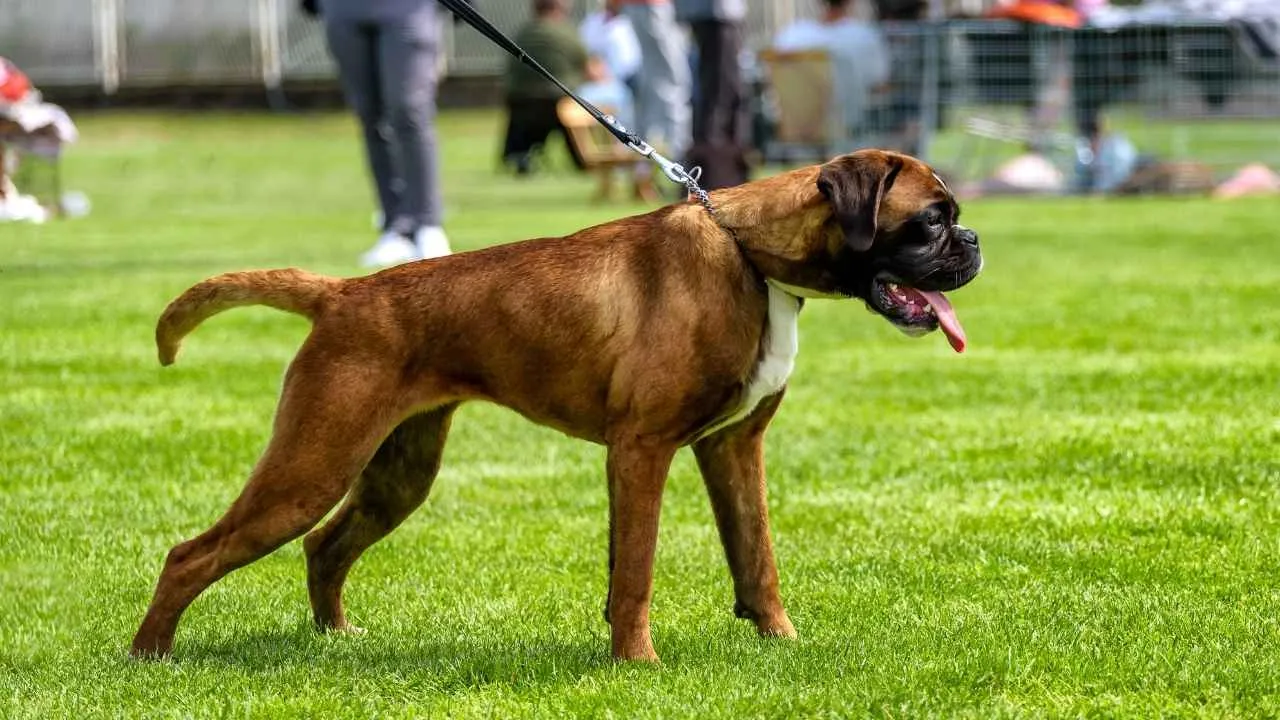
As noted by PDSA, boxers are affectionate, loyal, and deeply connected to their human families. Boxers thrive on companionship and tend to form strong bonds with those they trust. Their spirited personality and protective instincts make them wonderful additions to active households, especially those with older kids who can match their energy and enthusiasm.
Known for being highly trainable, Boxers respond well to consistent training and extensive socialization from an early age. While they’re playful and sometimes a bit goofy, they’re also highly intelligent—a combination that, with patience, leads to good manners and reliable behavior.
Their deep loyalty often translates into a desire to please, which helps them excel in roles that require structure and emotional awareness, including as guide dogs or therapy companions.
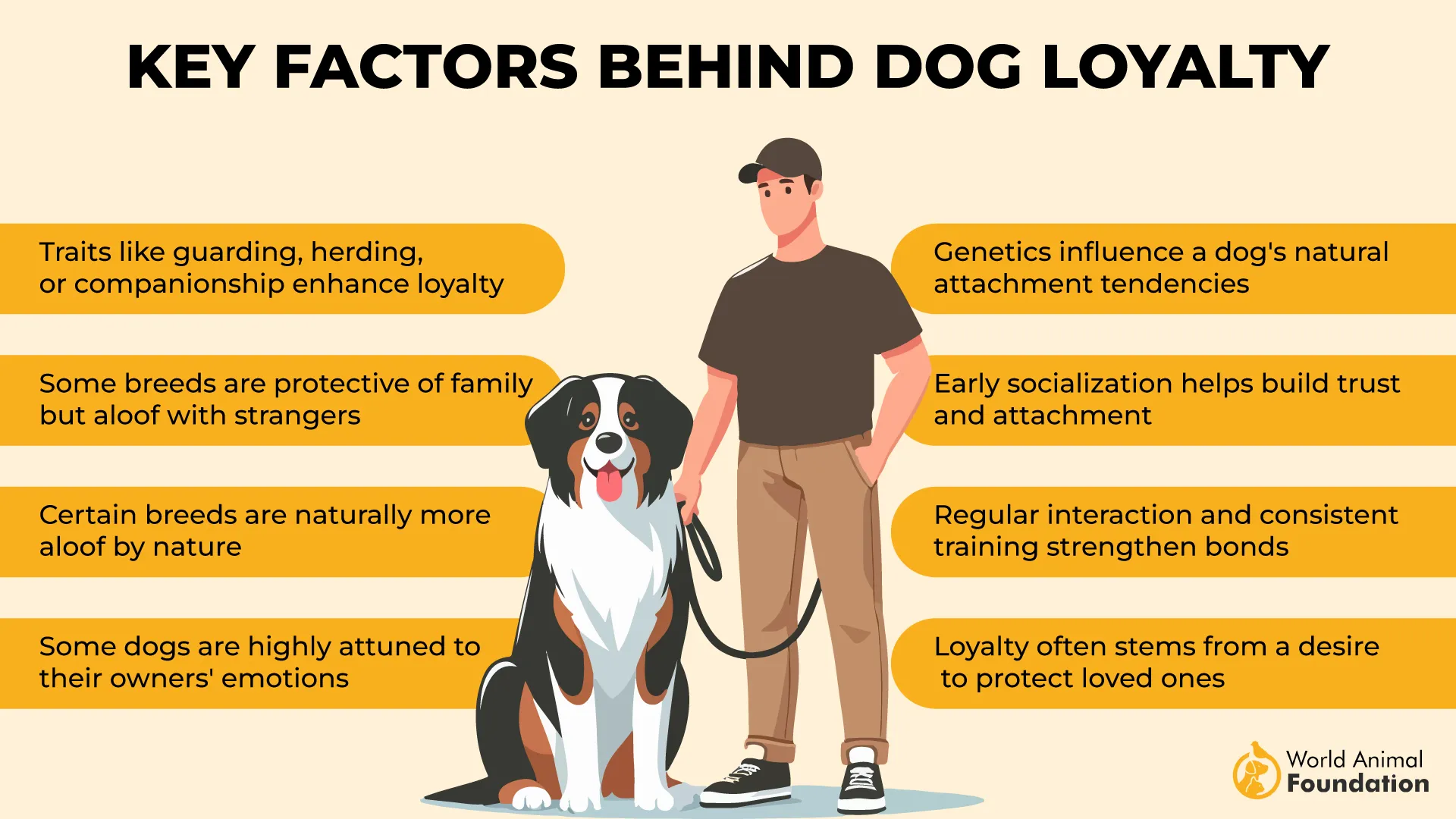
Though they have high energy levels, Boxers only require moderate exercise to stay balanced. Daily walks, games of fetch, and some mental stimulation keep them happy and well-adjusted. Their short coat makes grooming easy, but they do best in environments where they’re not left outside for long stretches. These dogs are social at heart and can struggle if isolated or under-stimulated.
Boxers often do well in families with older children, where their playful yet protective nature is appreciated. They may not be the best match for every household, especially if the structure and time needed for training aren’t available. However, when given the right foundation, they grow into devoted, well-rounded companions who can gracefully follow their families into old age.
While generally healthy, Boxers are known to face certain health issues, such as heart conditions and joint problems, as they age. Regular vet visits, a proper diet, and manageable daily exercise can go a long way in maintaining their quality of life. Raising them from puppies with the right balance of care and guidance ensures they mature into calm, dependable adults.
4. Golden Retriever

Golden Retrievers are often hailed as one of the fiercely loyal dog breeds, and it’s easy to see why. With their gentle, loving nature, these dogs form deep emotional bonds with their families, making them ideal companions for both individuals and families alike. Their eagerness to please is unmatched, which translates into their strong ability to excel in various roles, including rescue and service work.
Thanks to their highly intelligent nature and trainability, Golden Retrievers are commonly found in service dog roles. They’re exceptional at guiding those with visual impairments and assisting individuals with physical disabilities, thanks to their patient and calm demeanor. Their natural empathy allows them to be outstanding therapy dogs, providing comfort and emotional support in hospitals, nursing homes, and schools.
Golden Retrievers are also valuable in rescue work, particularly in search-and-rescue operations. Their powerful sense of smell and keen instincts make them ideal for locating missing persons in disaster zones or challenging terrain. Their energy and stamina allow them to work tirelessly, often in extreme conditions, and their steady temperaments help them stay focused even when facing danger.
While Golden Retrievers are versatile in service work, their loyalty and dedication shine brightest when they’re in an environment that aligns with their loving nature. They’re excellent with children, and their gentle giant persona makes them patient and affectionate companions. Golden Retrievers thrive in active homes where their moderate exercise needs are met, whether it’s a long walk, a game of fetch, or a swim.
Their strong bond with their families makes them sensitive to emotional shifts, and they’re known to provide comfort when their loved ones are feeling down or anxious. This intuitive connection is one of the reasons they’re so effective as emotional support animals, capable of sensing their human’s needs without being asked.
Golden Retrievers do require commitment in terms of daily exercise and grooming. Their thick, flowing coat needs regular attention, but the effort is well worth it, given their unwavering companionship. With the right balance of care, training, and love, a Golden Retriever proves to be not just a service dog but a true, loyal friend.
5. Pug
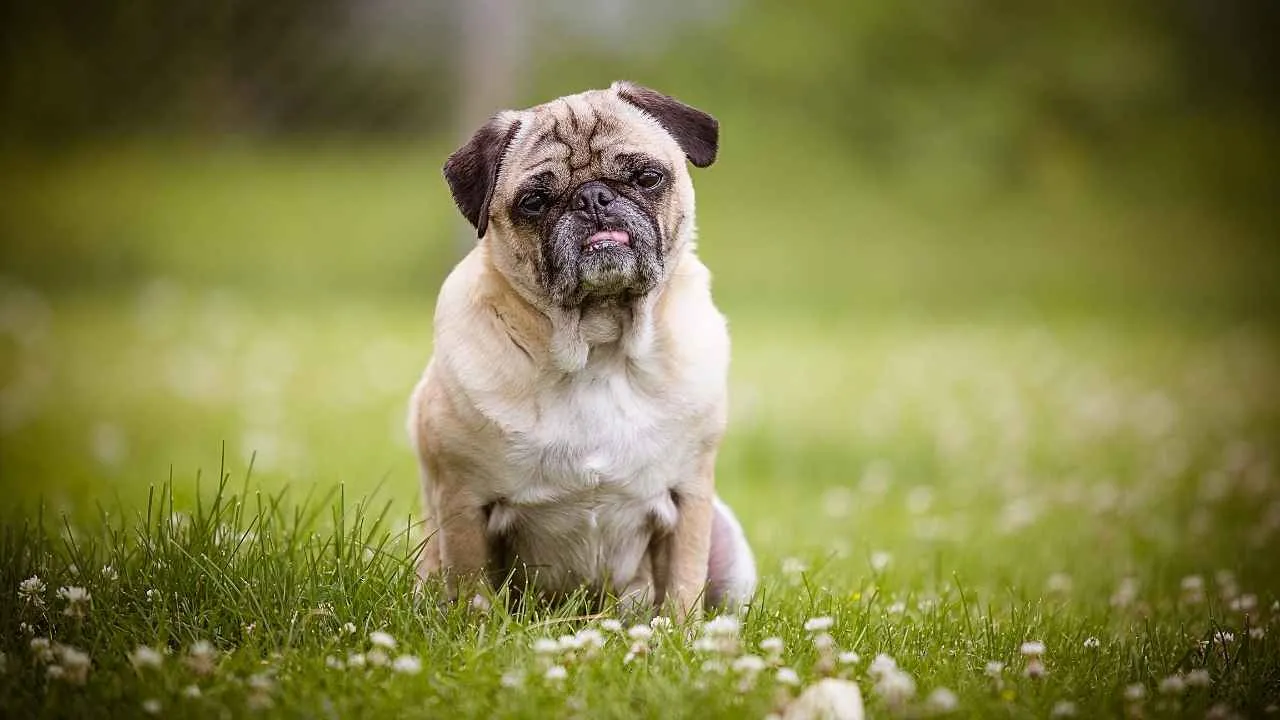
The Pug’s history traces back over 2,000 years, originally bred in China to be companions for royalty. These small, sturdy dogs were treasured for their affectionate nature, often seen lounging by the feet of emperors and living in the lap of luxury. Their status as beloved pets spread across Europe, where they became a symbol of loyalty and devotion, earning them a permanent place in royal courts and noble families.
Historically, Pugs were more than just pets. They were companions in every sense, offering warmth and comfort to those who needed it most. Their cheerful nature and constant desire to be by their owners’ side made them the perfect companions for royal families and individuals alike.
Over the centuries, their role as affectionate, steadfast companions only grew stronger, and today, they continue to provide unwavering loyalty to those who welcome them into their homes.
Known for their loyal nature, Pugs form deep emotional bonds with their owners. Their love for human companionship is unmatched, and they thrive on being close to their family members, often seeking attention and affection at every opportunity.
Despite their small size, their loyalty is as strong as that of much larger breeds, making them excellent family companions and watchdogs, always on the lookout for their loved ones’ well-being.
Pugs are highly attuned to their owners’ needs, responding with affection and devotion, whether their family is celebrating or feeling down. Their loyalty doesn’t just come from being attentive; it’s also reflected in how they become an integral part of the family, wanting to be included in every activity.
Although small in size, Pugs have a big personality. They form a strong bond with their families. Their devotion to their owners makes them the perfect choice for those seeking a loyal, affectionate dog who’s equally happy lounging on the couch or following their family members around the house.
6. Newfoundland
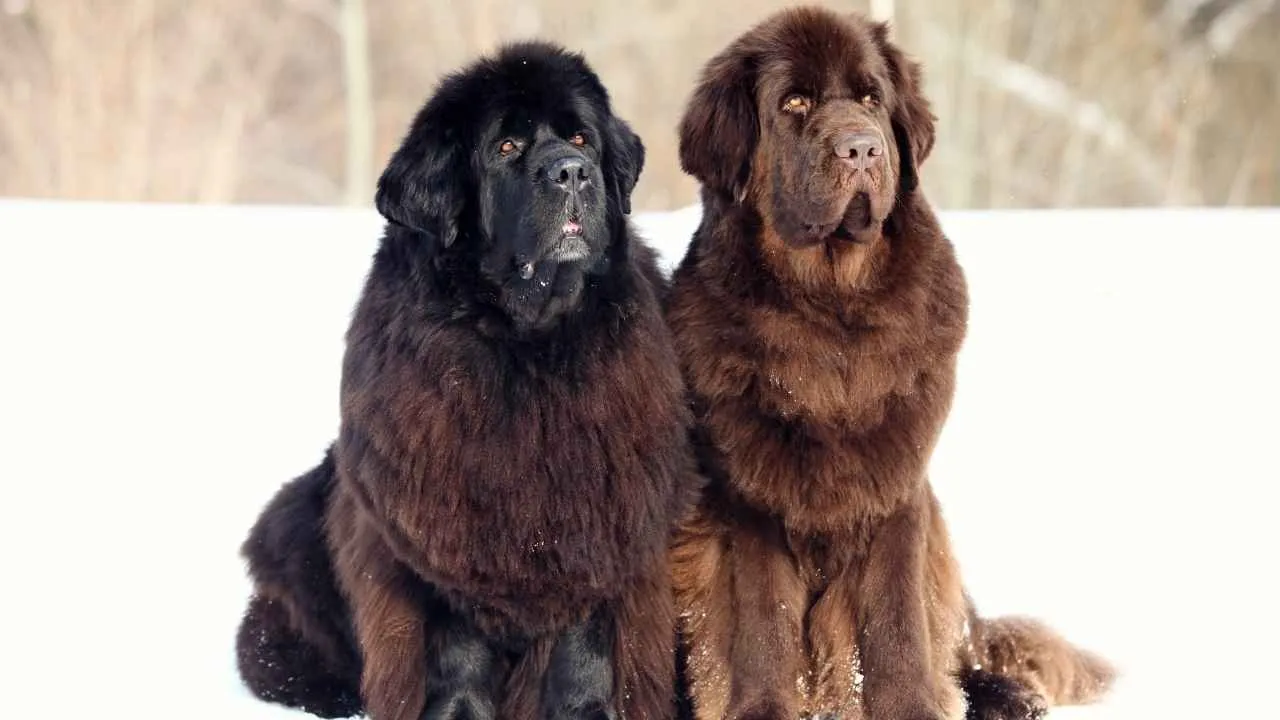
Newfoundlands are renowned for their remarkable loyalty and gentle temperament, earning them a reputation as one of the most steadfast companions in the canine world. Their calm demeanor and natural protective instincts make them incredibly devoted to their families, often forming deep, unbreakable bonds with those they love.
As noted by WebMD, Newfoundlands are known for their affectionate nature, especially when it comes to children, earning them the title of “nanny dogs”.
Their loyalty isn’t just a personality trait—it extends to their roles as working dogs. Historically bred in Newfoundland, Canada, for water rescue, these dogs were originally tasked with pulling nets for fishermen and rescuing people who fell overboard.
Their love for water, combined with a powerful swimming ability and a keen sense of direction, makes them naturally suited for aquatic rescue operations. Even today, Newfoundlands are often used in rescue work, especially in drowning prevention and water rescues.
Newfoundlands’ temperament makes them an ideal match for rescue work that requires patience and steady reliability. These dogs remain calm and focused under pressure, making them excellent partners for search-and-rescue operations in water and rugged terrain. Their size and strength enable them to assist in pulling individuals from dangerous situations, offering both physical power and emotional reassurance to those in distress.
Their loyalty also shines through in service roles, especially for individuals with physical disabilities. Newfoundlands are large enough to assist with mobility tasks, such as pulling wheelchairs or carrying heavy items. Their calm nature makes them reliable in settings that demand consistency, like therapy work in hospitals or nursing homes, where their gentle presence can have a soothing effect on patients and staff alike.
While Newfoundlands are known for their loyalty and calm nature, they are also highly intelligent and trainable. However, their size requires consistent training to ensure they behave appropriately in various environments. With proper guidance and structure, they excel in fulfilling their duties, whether as rescue dogs or loving companions.
Although they require moderate exercise and occasional grooming due to their thick coat, Newfoundlands thrive in environments where they are valued for their loyalty and strength. When their needs are met, they become an unwavering partner, always ready to protect, serve, and love unconditionally.
7. Irish Setter
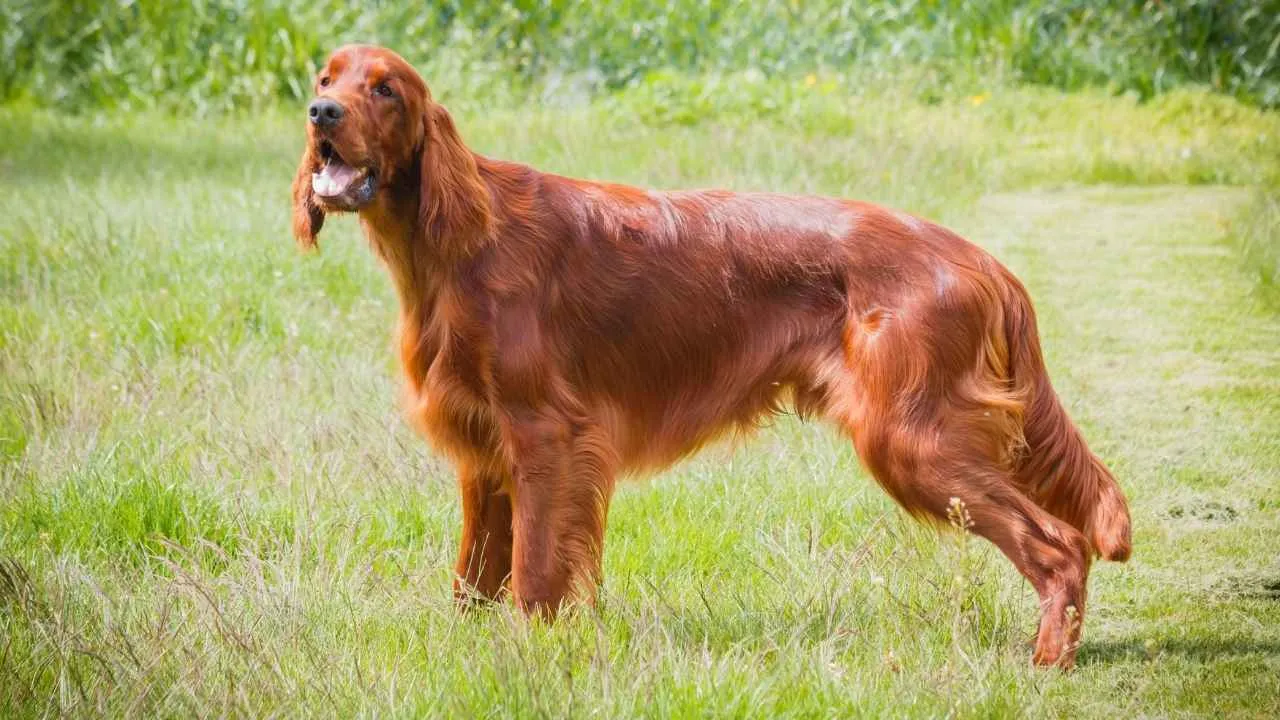
The Irish Setter, with its striking red coat and boundless energy, has a history that dates back centuries, originating in Ireland. Initially bred for hunting, this breed was prized for its speed, agility, and keen scenting abilities. Over time, Irish Setters became renowned not only for their prowess in the field but for their friendly, outgoing nature, making them a popular choice for both hunters and families alike.
Irish Setters are naturally well-suited for various roles, especially those requiring endurance and agility. As a member of the sporting group, they excel in bird hunting, where their ability to cover large areas and flush out game is unparalleled. Their high energy and determination make them ideal candidates for fieldwork, where their instincts and intelligence can be fully utilized.
While they may be best known for their hunting background, Irish Setters have proven to be capable in other service roles as well. With the right training and guidance, they’ve found success as search-and-rescue dogs. Their excellent sense of smell and speed allow them to locate missing persons quickly, especially in large, open spaces. Their resilience in the field makes them reliable partners for rescue teams working in challenging environments.
The breed’s high energy levels and agility also make Irish Setters well-suited for roles requiring stamina and physical ability. While not typically seen as guide dogs, their enthusiasm and desire to please can make them great therapy dogs, providing emotional support in environments like hospitals or nursing homes. Their friendly and social nature allows them to connect deeply with those in need of comfort and companionship.
Though typically healthy, Irish Setters can be prone to some genetic health issues, particularly with their joints and heart. Regular vet checkups and maintaining a proper exercise routine can help mitigate some of these concerns.
Irish Setters are playful and affectionate, forming a strong bond with their owners. Their love for outdoor activities, like running and hiking, makes them ideal companions for active owners.
Conclusion
Rescue dog breeds stand out not just for their resilience but for their fierce loyalty and potential to thrive in the right environment. From Pit Bulls known for their devotion to experienced dog parents, to Australian Cattle Dogs and Rough Collies bred to protect sheep and other livestock, these dogs are deeply committed companions when given proper training and early socialization.
Breeds like the Cavalier King Charles Spaniel and French Bulldog may require only moderate exercise, yet they offer immense affection and companionship in return. Whether you’re adopting an athletic Australian Shepherd suited for dog sport, or a Great Pyrenees ready to guard home and family, there’s a loyal match for every lifestyle.
With patience, love, and perhaps the support of a foster family, many dogs—from Beagles to Shiba Inus—can become wonderful pets, even in homes with cats or other dogs. Choosing a rescue from among the many breeds available not only transforms their life—it enriches yours in countless ways.


